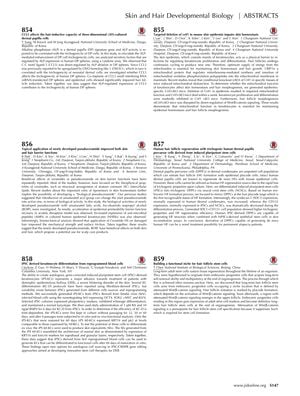Induced Pluripotent Stem Cell Derived Keratinocyte Differentiation from Reprogrammed Blood Cells
April 2017
in “
Journal of Investigative Dermatology
”

TLDR Blood cells turned into stem cells can become skin cells similar to normal ones, potentially helping in skin therapies.
The document reports on a study where induced pluripotent stem cells (iPSCs) derived from blood cells reprogrammed with Sendai virus were successfully differentiated into keratinocytes (iPS-KCs). These iPS-KCs, after 60 days of maturation in vitro, expressed levels of KRT14 and p63 comparable to normal human keratinocytes (NHKCs). When used to produce skin equivalents (SEs), the architecture resembled that of normal skin, indicating functional differentiation. This suggests that iPSCs from reprogrammed blood cells can be used to generate keratinocytes that, after a sufficient maturation period, have the potential for use in autologous cell sourcing for stem cell therapies, particularly for conditions like dystrophic epidermolysis bullosa (DEB).




